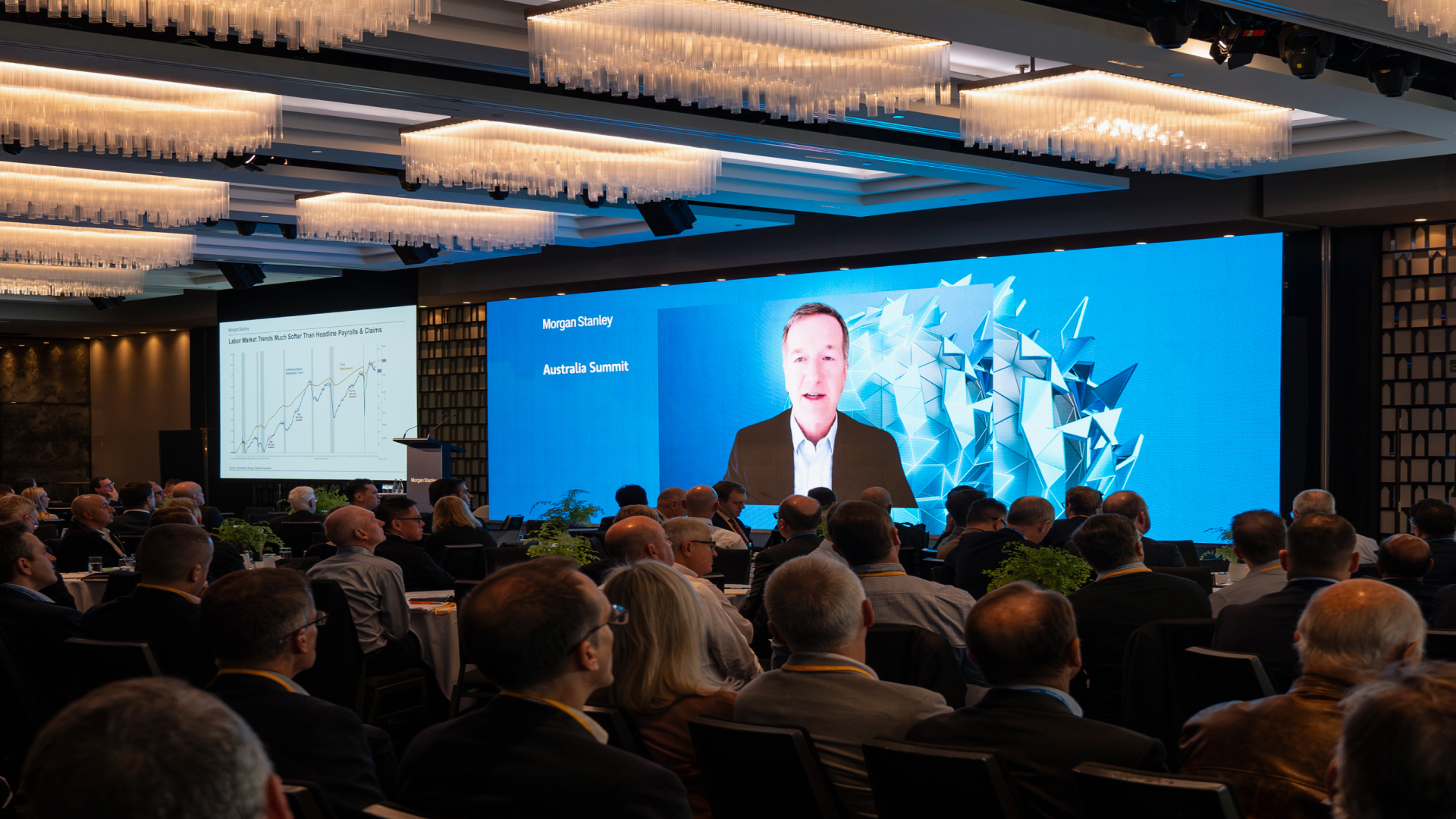The sector that benefits most from a "late cycle" stock market
Michael Wilson, Morgan Stanley's Chief Investment Officer and Chief US Equity Strategist, was Wall Street's most "prominent bear" (his words) for a long time.
At various points, he has argued that the S&P 500 could have fallen more than 20% if a recession arrived in 2023, that stocks were about to ride a "boom-bust" cycle, and the earnings recession would be "worse than you think".
None of those came to fruition and recently, Wilson upgraded his S&P 500 price target and forecast that earnings will likely recover over 2025 and 2026 while noting the macro outcomes for 2024 remain uncertain.
Mind you, Wilson is not characterising himself as a bull just yet.
"I would say, where we are now, is we are in the middle or very neutral mainly because of valuations and because of the incredible uncertainty that's still out there from a macro standpoint," Wilson told the Morgan Stanley Australia Summit.
To find out what his current thinking is, the clues that explain his base case, and how he is investing, read the rest of this wire.

Soft, hard, or no landing?
Given we are still in an investing cycle that has been dominated by confusing macroeconomic factors, the jury is still clearly out on this question. For Wilson's part, his base case is that we are in a "no landing" scenario for the US market. A "no landing" scenario suggests that economic growth (GDP) can continue to accelerate even if inflation bottoms out at 3%+ instead of the 2% target most central banks set.
Importantly, Wilson's "no landing" scenario is not the current house view of Morgan Stanley's economics team. That team, led by Global Chief Economist Seth Carpenter, is projecting a "soft landing" for the US. The last, Wilson emphasises, is the prospect of a "hard landing" or a recession. While the US is close, it is not out of the woods just yet.
"All the recession indicators that told us last year that the risk of recession was quite high are still elevated and they haven't gone away," Wilson noted before adding "Probably the most dubious one is the yield curve."
Welcome to the late cycle market
Above all, Wilson believes this equity market is showing signs of "late cycle" behaviour. How does he know this?
- We are seeing the price of stocks (on aggregate) disconnect from its macro fundamentals (e.g. the S&P 500 is not moving in the same direction as PMIs, or the S&P 500 and earnings revisions index gap is widening).
- The S&P 500 is pricing in a huge rebound in leading economic indicators, suggesting the market believes productivity has bottomed and will continue to reaccelerate.
- The inverted yield curve now suggests that interest rates are too high - impacting everything from government bonds to small caps
- P/Es shift lower and earnings can reaccelerate in a late cycle environment
- Stock specific risks are elevated but "quality" oriented stock valuations are sitting around the long-term median
- Industrials tend to outperform cyclicals in late-cycle markets
What do you want to own in each?
In the "soft landing" scenario, which is the one the markets have priced in as the consensus view, the playbook is to keep on keeping on:
"What tends to work well within equities is high quality growth stocks. It's basically any high-quality large-cap company that can operate in, what I would argue, is a very challenging environment for many businesses," Wilson said before reminding the audience that this is not necessarily just the Magnificent Seven.
Some of the other high quality growth stocks outside of mega-cap tech stocks he identified in his presentation include Visa (NYSE: V), Mastercard (NYSE: MA), Costco (NASDAQ: COST), Nike (NYSE: NKE), and Colgate (NYSE: CL).
In the no landing scenario, he argues that the best trade is in high-quality cyclical stocks.
"[These are] things like energy, materials, and some industrials - things along those lines which aren't as expensive because if rates are higher, then those high multiple growth stocks won't do as well," Wilson said.
In the hard landing scenario, he noted defensive names like consumer staples stocks would likely be the most appropriate style of stocks to own.
Above all, Wilson recommends having a "foot in each bucket" because we still don't know the outcome of this cycle. He also thinks that a barbell strategy balancing high quality growth and high quality cyclicals is wise.
"The market is trying to look for new names [beyond the Magnificent Seven] which can work in this kind of an environment," Wilson added.
One last note - be careful what you wish for
Finally, this slide caught my eye in Wilson's presentation and I have partially reproduced it here in table form. The table demonstrates how the S&P 500 performed long after the first rate cut. And it is far from always the case that the first rate cut is a good thing.
| Year | 3mths | 6mths | 9mths | 12mths |
| 1973/1974 | -8% / -24.5% | -7.7% / -21.9% | -16.3% / -2.5% | -30.8% / 10.2% |
| 1980/1981 | +11.9% / -7% | +22.9% / -6.3% | +33% / -15.2% | +33.2% / -16.2% |
| 1998 | +16.9% | +22.3% | +27% | +22.3% |
| 2007 | -2.1% | -13.5% | -8.5% | -21.7% |
Source: Bloomberg, Morgan Stanley Research
Livewire is a guest at the Morgan Stanley Australia Summit.
Information is everywhere; true insight is rare.
Morgan Stanley brings knowledge and experience from across the globe to make sense of the issues that matter. For all their latest insights, please visit the Morgan Stanley website.
1 topic
5 stocks mentioned

